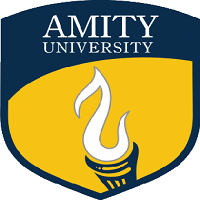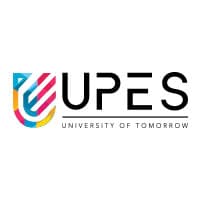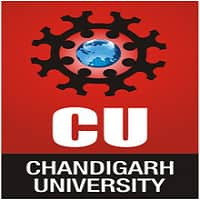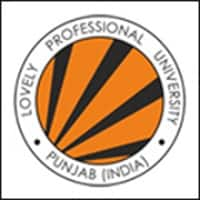Sanskriti University B.A Admissions 2025
Best innovation and research-driven university of Uttar Pradesh
Bachelor of Vocation in Optometry is a three-year undergraduate degree that explores vision science and eye care. It teaches optical principles, ocular anatomy, and physiology, which promotes practical abilities in vision evaluation and the diagnosis of eye diseases. Students are prepared to meet the increasing need for eye care specialists in India's healthcare industry when they graduate.
In order to be eligible, students must have passed 10+2 in Physics, Chemistry, Biology/Mathematics. Students participate in internships to obtain practical experience in addition to classroom instruction. They become more adept in performing eye exams, fitting contact lenses, and treating common eye problems as a result of this practical approach.
Graduates may choose to work for optical chains or in eye hospitals. They can work as managers of optical stores, clinical researchers, or optometrists. Top recruiters include LVPEI and Aravind Eye Care System. Graduates can expect pay ranging from Rs. 3 to Rs. 5 lakhs annually.
| Particulars | Values |
|---|---|
| Course Name | BVoc Optometry |
| Course Duration | 3 Years |
| Admission Process | Merit Based |
| Eligibility Criteria | Passed the 10+2 examination with Physics, Chemistry, Biology/Mathematics as mandatory subjects from a recognized board or university. |
| Fees | Rs.0.5 lakhs to Rs.2 lakhs |
| Salary | Rs. 3 LPA - Rs. 9 LPA |
| Top Recruiters | LVPEI, Aravind Eye Care System, Centre for Sight, Titan Eye Plus |
| Job Profile | Optometrist, Orthoptist, Optical Product Designers and Developers, Research Scientist |
The eligibility for Bachelor of Vocation in Optometry differs according to the institution that offers the programme. In order to be eligible to pursue a BVoc Optometry, candidates must normally fulfil the following requirements:
The admission process for a BVoc Optometry is a series of steps designed to evaluate a candidate's aptitude. The admission process for the BVoc Optometry involves the following:
A combination of technical skill, creativity, and critical thinking is required when pursuing BVoc Optometry. The following are the major skills required to succeed in this course:
The BVoc Optometry programme prepares candidates for rewarding employment paths. For the convenience of the candidates, we have provided the syllabus as per MES Keveeyam College, Malappuram.
| Semester 1 | |
| AO1 Transactions Essential English Language Skills | Malayalam Bhashayum Sahithyavum-I/ Communication Skills in Arabic/ Prose and one act plays |
| General Anatomy & Physiology | Physical Optics |
| Microbiology & Pharmacology | General Anatomy & PhysiologyPractical |
| Microbiology & Pharmacology - Practical | |
| Semester 2 | |
| Ways with Words | Malayalam- Bhashayum Sahithyavum-II/ Literature in Arabic/ Poetry and Short Stories |
| Ocular Anatomy & Physiology | Geometrical Optics |
| Biochemistry | Ocular Anatomy & PhysiologyPractical |
| Internship/Project | |
| Semester 3 | |
| Writing for academic & professional success | Ocular Disease |
| Clinical Refraction | Pathology & Immunology |
| Ophthalmic Instrumentation & Procedure | Pathology & Immunology Practical |
| Ophthalmic Instrumentation-Practical | |
| Semester 4 | |
| Zeitgeist : Readings on society and cultures | Environmental Science |
| Community Optometry | Visual Optics |
| Dispensing Optics | Dispensing Optics-Practical |
| Internship/ Project | - |
| Semester 5 | |
| Nutrition | Geriatric & Pediatric Optometry |
| Contact Lens | Binocular Vision |
| Low Vision Aid & Visual Rehabilitation | Contact Lens & Binocular VisionPractical |
| Low Vision & Geriatric Pediatric Optometry Practical | - |
| Semester 6 | |
| Major Internship (900 hrs.) | |
The fee structure for the Bachelor of Vocation in Optometry varies among institutions and can range from Rs. 50,000 to Rs. 2,00,000 for institutions. Additionally, there are potential additional costs such as accommodation and other related expenses. Financial aid options and scholarships may also be available, providing support for prospective students.
BVoc Optometry offers a bright future with prospects in a range of industries, including clinics, optical chains, eye hospitals, and research facilities. Graduates can work as clinical researchers, optometrists, or opticianry managers. As the need for vision care services and knowledge of eye health rise, BVoc Optometry graduates are essential in meeting the changing demands of the healthcare sector.
There are various opportunities after completing a BVoc Optometry. Candidates can select from a variety of employment profiles, ranging from offers from global corporations to startups. Below is a summary of some common job profiles that they can go for:
Optometrist: Optometrists conduct examinations of the eyes, identify issues with vision, and recommend treatment or corrective lenses. They are essential to preserving eye health and giving patients individualised care that enhances their quality of life and eyesight.
Clinical optometrists: Clinical optometrists diagnose and treat a range of eye disorders. They offer complete eye care services, including prescribing corrective lenses, performing eye exams, and keeping an eye on ocular health. They frequently collaborate with ophthalmologists in medical settings.
Orthoptist: Orthoptists work closely with eye surgeons to address diseases including strabismus (eye misalignment) and amblyopia (lazy eye). They are specialists in the diagnosis and treatment of binocular vision impairments and eye movement disorders.
Optical product designers and developers: Optical product designers and developers create innovative lenses, eyewear, and vision aids. Their unique products improve consumers' visual comfort and style by combining creativity and technical knowledge.
Research scientists: Optometry research scientists contribute to the field by conducting studies, creating novel tools or therapies, and disseminating their findings. They support the advancement of vision care procedures and the resolution of new issues pertaining to eye health.
Graduates of the Bachelor of Vocation in Optometry programme can pursue employment prospects in a variety of fields. Some significant companies that actively employ specialists in the industry are:
Salary of candidates after BVoc Optometry can be computed based on the candidate's skills, location of employment, and job profile. The starting wage is smaller, but as the individual learns and develops experience, the salary improves.
| Job Profiles | Average Salary |
|---|---|
| Optometrist | Rs. 2.9 LPA |
| Clinical Optometrist | Rs. 3.2 LPA |
| Orthoptist | Rs. 3.8 LPA |
| Optical Product Designers and Developers | Rs. 6.3 LPA |
| Research Scientist | Rs. 9.1 LPA |
Source: AmbitionBox
The BVoc Optometry program provides students with a dynamic combination of theoretical knowledge and practical skills, enabling them to become experts in vision science and eye care. With practical instruction in optometric methods, diagnostic skills, and patient care, graduates are equipped for fulfilling professions as optometrists, providing vital eye care services and improving people's quality of life in general.
Several Indian universities provide BVoc Optometry Courses. BVoc Optometry institutions provide numerous benefits. Some of India's leading institutions that provide a BVoc Optometry include:
| Colleges | Fees |
|---|---|
| MES Keveeyam College, Malappuram | Rs. 66,000 |
| Pondicherry University Community College, Puducherry | Rs. 1.08 Lakhs |
| SNDT Womens University, Mumbai | - |
| Starex University, Gurugram | - |
| SunRise University, Alwar | Rs. 1.89 Lakhs |
| Tata Institute of Social Sciences, School of Vocational Education, Mumbai | Rs. 1.65 Lakhs |
| Transdisciplinary University, Bangalore | Rs. 1.83 Lakhs |
Compared to private colleges, government-run colleges are less expensive to attend. Some of the top government colleges that offer BVoc Optometry with their respective fees are mentioned in the following table:
| Colleges | Fees |
|---|---|
| Pondicherry University Community College, Puducherry | Rs. 1.08 Lakhs |
| SNDT Women's University, Mumbai | - |
Compared to government colleges, private colleges are expensive to attend. Top private college that offer BVoc Optometry with its respective fees is mentioned in the following table:
| Colleges | Fees |
|---|---|
| MES Keveeyam College, Malappuram | Rs. 66,000 |
| Starex University, Gurugram | - |
| SunRise University, Alwar | Rs. 1.89 Lakhs |
| Tata Institute of Social Sciences, School of Vocational Education, Mumbai | Rs. 1.65 Lakhs |
| Transdisciplinary University, Bangalore | Rs. 1.83 Lakhs |
In conclusion, a BVoc in Optometry equips students with the essential skills and knowledge required for success in the optometry profession. By combining academic knowledge with hands-on training, graduates can significantly improve eye health and well-being. Graduates can work in a variety of fields, including clinical practice, vision therapy, and optical research.
The BVoc Optometry programme is a three-year undergraduate degree.
Candidates must have passed the 10+2 examination with Physics, Chemistry, Biology/Mathematics as mandatory subjects from a recognized board or university.
Yes, graduates can pursue higher studies such as Master of Optometry (MOptom) or Doctor of Optometry (OD) for advanced specialisation and career advancement opportunities.
The curriculum covers a range of subjects including ocular anatomy, physiology, optical principles, diagnostic techniques, contact lens fitting, low vision management, and clinical optometry practices.
Graduates can pursue careers as optometrists, opticianry managers, clinical researchers, or educators in various settings such as eye hospitals, optical chains, clinics, and academic institutions.
Application Date:17 March,2025 - 07 May,2025
Hello,
As a Agriculture student, you may be eligible for an MSc in agriculture, depending on the universitys specific admission criteria. most universities require a relevant undergraduate degree in agriculture or a related field. its important to check the eligibility requirements of the university you wish to apply to.
To change from B.Voc Physiotherapy to B.P.T.:
1. Check eligibility and institution requirements.
2. Contact your current institution about lateral entry.
3. Apply for admission and entrance exams (if required).
4. Complete the admission process.
Alternatively, complete B.Voc and pursue M.P.T. for advanced knowledge.
hi there ,
Pursuing a Master of Vocation (M.Voc) in Gemmology in India is a specialized endeavor, and currently, there are limited institutions offering this specific program. One notable institution providing an M.Voc in Gemmology is the Indian Institute of Gems and Jewellery (IIGJ), Jaipur.
Indian Institute of Gems and Jewellery (IIGJ), Jaipur:
While the M.Voc in Gemmology is not widely available, several institutions offer related postgraduate programs and diplomas in gemmology:
University of Mysore:
St. Xavier's College (Autonomous), Mumbai:
Indian Institute of Gemology (IIG), Mumbai:
Gemological Institute of America (GIA), Mumbai:
hope this helps
Hello there,
Lingaya’s Vidyapeeth is a UGC-recognized university. However, for Maharashtra government counseling or eligibility for government jobs, it is essential to check if the university and your BVoc (Operation Theater Technology) course are approved by the relevant state authorities like the Maharashtra State Council of Paramedical Education or similar bodies.
You should verify:
Contact the university or the Maharashtra health education board for confirmation.
I hope this answer helps you. If you have more queries then feel free to share your questions with us we will be happy to assist you.
Thank you and wishing you all the best for your bright future.
You will have to check the eligibility criteria of different colleges offering M.Sc. in Nuclear Medicine Technology. Straight entry opportunities exist for a B.Sc. in Radiotherapy and Radiology, but not necessarily all M.Sc. courses with a B.Voc. in Radiology Technology.
Here are some options:
1. Direct Admission:
Contact Colleges: Contact colleges offering M.Sc. in Nuclear Medicine Technology and ask for eligibility through a B.Voc. Many colleges may consider your practical exposure and marks.
Entrance Exams: A diploma candidate can opt for entrance exams like GATE or any entrance exam of the college/university. A good score will boost possibilities to get admissions.
2. Diploma in Nuclear Medicine Technology:
Consider diploma in Nuclear Medicine Technology. This can bridge the gap between the B.Voc. and M.Sc. requirements.
3. Research and Networking:
Stay informed about admissions as well as the latest information about eligibility criteria.
Network with professionals who can give good insights as well as guidance.
Scouting research or internship opportunities to add value to your profile.
Here are some of the repute M.Sc. institutions in India offering Nuclear Medicine Technology:
All India Institute of Medical Sciences (AIIMS), New Delhi
Post Graduate Institute of Medical Education and Research (PGIMER), Chandigarh
Tata Memorial Centre, Mumbai
Bhabha Atomic Research Centre (BARC), Mumbai
Manipal Academy of Higher Education, Manipal
Always verify the eligibility criteria as well as the admission procedure of each college to which you plan to apply.

Ranked amongst the top 3% of universities globally (QS Rankings)

Ranked #46 amongst Universities in India by NIRF | 1900+ Students Placed | 94% Placement | 633+ Recruiters

Ranked #1 Among all Private Indian Universities in QS Asia Rankings 2025 | Scholarships worth 210 CR

India's Largest University | NAAC A++ | 100% Placements Record | Highest CTC 2.5 Cr PA | 145 + Programmes in 55+ Disciplines | End Date : 15th Apr’25
100+ Industry collaborations | 10+ Years of legacy
Accorded Institution of Eminence by Govt of India, NAAC A++ Accredited, Ranked #4 by NIRF 2024